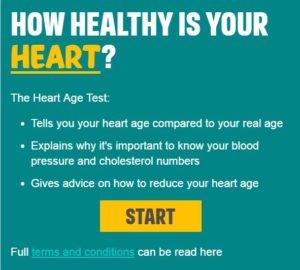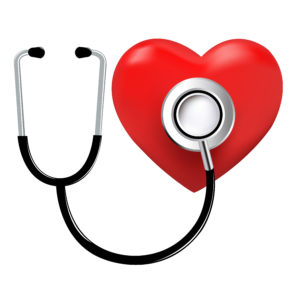How healthy is your heart?
Are you more at risk because of thalidomide?
We’re all getting older - at least one of you recently celebrated your 60th birthday and the rest are now in your mid to late 50s – time flies. With age comes wisdom, so they say, but there are some drawbacks.
The risk of heart disease increases as we age – some of you may already have had a heart attack, stroke or experienced other cardio vascular problems – or perhaps have been told you’re at risk in the future and will have started preventative treatment.
We’ve recently had a few enquiries from beneficiaries asking if heart disease is more common amongst beneficiaries and how the Trust is helping. Read on to find out more.
What do we know?
Recent cardio vascular research from abroad is very reassuring. Though scientists in both Japan and Germany have suggested there is a slight increased risk of having a heart attack or stroke in thalidomide survivors, they have found no evidence that it is due to thalidomide per se.
German researchers have looked at the kidneys, the heart and the chest area with special scans, and specifically, at how the kidney is functioning in those affected by thalidomide. Despite obvious changes in numbers and position of some of the arteries and veins, they have not found that this is causing any problem to the overall heart circulation or the control of blood pressure; the heart and kidneys are functioning normally.
This is very good news!
However, though the study was quite large, it was confined to those who had upper limb issues and no one with lower limb damage was included. It also means that it is important to let any surgeon know about the possible changes in position and numbers of the vessels if any surgery is planned near the kidney. The Thalidomide Trust will look into this further and update you.
The Trust has looked at what you’ve told us about your medical issues during visits (HNA’s) in relation to heart attack or stroke and the information suggests that there is an increased risk.
Visits have also told us that many of you have unhealthy lifestyles that may be causing this increased risk; you have told us that more of you smoke (25%), feel you are overweight (93%), do not feel you’re taking enough regular exercise and also drink more alcohol than the average person in the UK.
What is the Trust doing to help?
Cardio vascular risk has been an important area for the Trust for some time; in part, because we know some of you are using your leg to take your blood pressure and have difficulty having blood taken for routine checks. You may already be aware of our work with The Royal National Orthopaedic Hospital to look at how a blood pressure taken in the leg compares to that taken in the arm, because we have asked you to let us know if you are having surgery.
We’re also in contact with other research teams, such as those at the University of Exeter and the University of Oxford, to see how else we can help.
As well as this, we link very closely with overseas communities affected by thalidomide to find out what research they are conducting; that’s how we know about the research in Japan and Germany. We hope to give you an update soon.
What does the NHS provide?
The NHS offers a health check to all eligible adults between the ages of 40 – 74, every five years. You should have been offered one by your GP practice. If you haven’t had one yet, give them a call and ask for one. The check includes lifestyle risk factors such as diet, physical activity, smoking and alcohol, and physical risk factors like high blood pressure, blood sugar and cholesterol.

How can the Trust help?
We’re hoping to work with health teams to discuss how we can make the NHS health check more beneficiary-friendly.
In the meantime, we know many of you struggle with exercise and diet. We’ve worked hard to give you information in the Food and Nutrition area on how to eat more healthily , with the Mediterranean diet known to help prevent heart disease, and how to be more active, with events such as “Fit for the Future”, and health awareness weeks.
We have increased the information on the website and have examples of how some of you have managed to live more healthily in the form of beneficiary stories.
If you’re a smoker, stopping smoking is the single, biggest step you can take to improve your health. Within hours of stopping your heart rate returns to normal, within days your sense of smell and taste improves, within weeks your blood becomes less sticky with less chance of a heart attack; and after a whole year your risk of heart disease and heart attacks will be halved!
If you want to know how healthy your heart is click "Start" in the green box when you’ve finished reading. It will take you to another helpful site.
If you have any concerns regarding your risk of having a heart attack or stroke contact one of the Trust Medical Advisers (by filling in the form below) who will be very happy to discuss this with you further.

